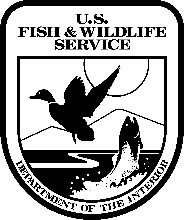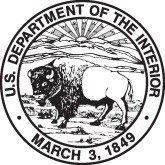Instructions for FWS Form 3-2550
Instructions for FWS Form 3-2550 UBT City Partnership Reporting Form 3-2550.docx
Urban Bird Treaty Program Requirements
Instructions for FWS Form 3-2550
OMB: 1018-0183
FWS Form 3-2550-I (Rev. 09/2021) OMB Control No. 1018-####
U.S. Department of the Interior Expires ##/##/####

 INSTRUCTIONS
FOR FWS FORM 3-2550,
INSTRUCTIONS
FOR FWS FORM 3-2550,
“Urban Bird Treaty City Reporting Form”
U.S. Fish and Wildlife Service
Urban Bird Treaty Program
The Urban Bird Treaty Program’s vision is to make cities healthier places for birds and people through excellence in bird habitat conservation, bird hazard reduction, and meaningful engagement of diverse, underserved communities.
The U.S. Fish and Wildlife Service requires partners in designated UBT cities to report on their accomplishments every two years to maintain their city’s designation. Please fill out the excel spreadsheet form provided to the best of your ability. The form contains two sections:
Section 1 on Tab 1 to provide basic information on your UBT city and
Section 2 on Tabs 1 and 2 to report on partnership activity metrics for the two reporting years
In addition to the information requested on the form, please provide:
A geographic delineation of your UBT City. Please upload a map file of the geography that defines the boundaries of your UBT city. If there are no established boundaries, then please upload a map of the geographic boundaries that you would like the UBT designation to encompass. It should reflect the geographic extent of activities that are being conducted by the UBT city partnership.
Short 200-400 word project descriptions and photos for each UBT goal category.
To renew your city’s UBT designation for two years, please email to [email protected]:
Completed Excel form, including Tabs for Year 1 and Year 2
Geographic delineation/map of UBT city, and
Project descriptions (Word file) and photos (jpg 300 psi minimum) with captions and credits in Word file
Please
see page 2 and 3 of the instructions for more details. The Service
will review your submission and respond within 2-3 months. The
information you provide is critical to the designation process as it
ensures accountability and transparency, and helps the Service
confirm that UBT city partnerships are working actively toward the
goals of the UBT program.
If
your city's redesignation is approved, the Service will use the
information you provided to promote your city partnership's
accomplishments and share your stories with audiences across the
country to inspire people and organizations in other cities to
undertake urban bird conservation with the same energy, integrity,
and commitment. The Service will also use this information for
internal reporting and to sustain support for the program.
Thank
you for your efforts to make your city a place where birds and people
can thrive. We look forward to learning about and promoting your
accomplishments.
Section
1: Basic Information on Your Urban Bird Treaty City:
On
the excel form on Tab 1, please provide information on your UBT city
points of contact and any designation, redesignation, or anniversary
events being planned. You are not limited in text space available.
Section
2: UBT City Partnership Metrics
The
Service is committed to ensuring UBT program accountability and
success in achieving the following goals:
The three goals of the UBT Program are to:
(1) Conserve urban habitats for birds;
(2) Reduce urban hazards to birds; and
(3) Engage urban communities in bird-related conservation, science, recreation, and education activities, with a priority on diverse, underserved communities.
Please
provide metrics for two separate years of your UBT city
partnership's accomplishments, as indicated by the two separate
tabs: Year 1 and Year 2.
These metrics allow the Service to assess the activity level of each
UBT city and are aggregated to evaluate and report on the
accomplishments of the UBT program as a whole. Please include
metrics from all UBT partnership activities, including those from
projects funded by the NFWF Five Star and Urban Waters Restoration
Grant program.
If
any of the metrics overlap, please clarify the overlap in the
additional information section of the metrics. For example, if some
of the acres restored are along waterways and also reported as miles
of habitat along rivers, then please indicate the acreage-mile
overlap. Likewise if some of the acres restored also has ongoing
management that is reported, please indicate the overlapping
acres.
The
following are the metrics included in this form:
Habitat
Conservation:
Acres of habitat restored/enhanced/created: for description indicate habitat type, activity, location, etc.
Acres of habitat conserved/acquired: for description indicate habitat type, activity location, etc.
Miles of habitat along river/stream/other water body restored/enhanced: (can also be reported as acres) - for description indicate habitat type, activity, location etc.
Number of native trees, shrubs, forbs planted: for description indicate plant species, location, etc.
Acres of invasive/exotic species removed/controlled: for description indicate plant species removed, location, etc.
Acres under improved management (i.e., ongoing management to promote bird or other wildlife or other benefits) - for description indicate type of activity, habitat types, species benefitting, location, etc.
Habitat sites monitored - for description indicate location, types of habitats, metrics monitored etc.
Nest/roost sites constructed/installed – for description indicate type of structure, species benefitting, location, habitat type etc.
Nest/roost sites monitored – for description indicate type of structure/site, species benefitting, location, habitat type etc.
Other – provide title, units, and descriptions
Hazard Reduction:
Buildings participating in Lights Out Program- for description indicate types of buildings, location etc.
Buildings monitored for bird collisions – for description indicate types of buildings, location, number and species found, etc.
Buildings retrofitted to be bird safe – for description indicate types of buildings, types of retrofits, location, etc.
Buildings built/designed to be bird safe – for description indicate types of buildings, type of design, location, etc.
Pounds of trash collected – for description indicate habitat types, types of trash, location, etc.
Other – provide titles, units, and description
Community Education and Engagement:
People (adults and K-12 youth) engaged in conservation and science/monitoring activities – for description indicate kinds of activities, location, kinds of information collected etc.
Volunteers engaged in conservation and science/monitoring activities - for description indicate kinds of activities, locations, kinds of information collected, etc.
People (adults and K-12 youth) participating in recreation activities, education programs, festivals, and/or other public events - for description indicate kinds of activities, names of events, location, kinds of educational programs, etc.
Teachers participating in training events – for description indicate types of events, topics covered, grade level covered, location etc.
People reached through communications and outreach - for description indicate types of communications and outreach, characteristics of target audiences, topics covered, etc.
Jobs created - for description indicate types and levels of positions, organizations, etc.
Other
Please note that you are NOT required to report on all these metrics, just those that are most meaningful to your programs. This wide variety of metrics is provided to allow individual city partnerships to report on the activities that reflect their focus and strengths, which differ among cities and within cities in any given year.
That said, please provide as many of these metrics as possible as well as additional descriptive information to clarify them, if needed. Please include metrics for each goal category, if possible. Please break out adults and K-12 youth for two of the Community Engagement metrics, as indicated, if you collect that information. In the indicated sections, please provide "other" metrics not listed and descriptions, if you have them.
Section
3: Project Descriptions for Year 1 and Year 2
Please
provide descriptions of 2 or 3 UBT partnership project activities
and accomplishments for each of the three goals of the UBT Program.
Include 1-2 photos for each project for storytelling purposes.
Include photo captions and credits in the project description
section. You may reference a NFWF Five Star and Urban Waters
Restoration grant final report, if one has been submitted. You also
may provide links to reports or articles available online.
In
the description, please briefly discuss successes, challenges, and
lessons learned. Please incorporate examples that illustrate how you
achieve any of the U.S. Fish and Wildlife Service's Standards of
Excellence for Urban Wildlife Conservation -- see
https://www.fws.gov/urban/soe.php. If you have done any monitoring
and evaluation of your activities, please share those results as
well, especially if they informed the achievement of project
outcomes.
Habitat
Conservation Project Descriptions:
Describe a total of 2 or 3 specific events or activities that
contributed to your accomplishments for urban bird habitat
conservation during Years 1 and 2. You may include how the
event/activity contributed to other goal area accomplishments, but
the focus should be on habitat conservation activities and
outcomes.
Include:
1-2 paragraph (200-400 word) description, with dates indicated
1-2 photos with captions and credits
Successes, challenges, and lessons learned
Partners, including community organizations, contributing to the project
If relevant, any monitoring and evaluation results
Hazard Reduction Project Descriptions: Describe a total of 2 or 3 specific events or activities that contributed to your accomplishments for urban bird hazard reduction in Years 1 and 2. You may include how the event/activity contributed to other goal area accomplishments, but the focus should be on hazard reduction accomplishments.
Include:
1-2 paragraph (200-400 word) description, with dates indicated
1-2 photos with captions and credits
Successes, challenges, and lessons learned
Partners, including community organizations, contributing to the project
If relevant, any monitoring and evaluation results
Community
Engagement Project Descriptions:
Describe a total of 2 or 3 specific events or activities that
contributed to your accomplishments for community engagement for
Years 1 and 2. You may include how the event/activity contributed to
other goal area accomplishments, but the focus should be on hazard
reduction accomplishments.
Include:
1-2 paragraph (200-400 word) description, with dates indicated
1-2 photos with captions and credits
Successes, challenges, and lessons learned
Partners, including community organizations, contributing to the project
If relevant, any monitoring and evaluation results
Page
| File Type | application/vnd.openxmlformats-officedocument.wordprocessingml.document |
| Author | Bogart, Roxanne |
| File Modified | 0000-00-00 |
| File Created | 2024-07-20 |
© 2026 OMB.report | Privacy Policy